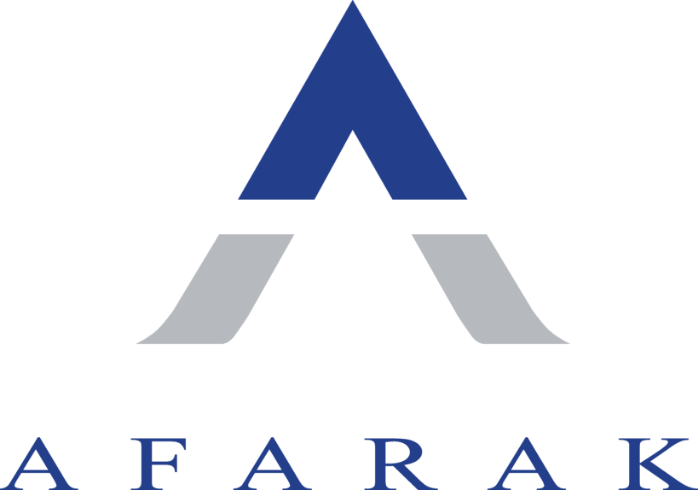RISKS AND UNCERTAINTIES
The purpose of risk management is to identify the threats and opportunities affecting the business and the implementation of its strategy and to ensure that the risks are proportional to the Group’s risk-bearing capacity. Afarak’s key risks are reviewed and assessed by the Board on a regular basis.
The risk management principles are discussed further in the Corporate Governance Statement.
Afarak has defined its main risk categories as strategic, operational and financial risks, each of which is discussed below. Additional information on financial risks and financial risk management are presented in more detail in the notes to the consolidated financial statements in the section 1.8.
Strategic risks
Afarak’s business is cyclical in nature and a significant strategic risk is the Afarak’s exposure to price and demand volatility in the commodities markets as well as the steel and stainless steel industries. The global market for Group’s products may not progress or develop at the levels forecast and a drop in demand for the Group’s products could have an adverse effect on the Group’s revenues and profits. As a vertically integrated producer who sells a diverse range of products, from raw chrome ore through to premium, speciality ferroalloy products, Afarak believes it can mitigate some of this risk by using its strong customer interface and market intelligence to adjust its production volumes to match demand and adapt its diverse product mix to meet customer requirements.
Afarak has mining operations and projects in Turkey and South Africa where political and social risks remain a challenge. Changes in the mining, employment and fiscal regulatory environment may materially adversely affect Afarak’s business and its financial results. Operations may be affected to varying degrees by government regulations with respect to matters including, but not limited to: export controls; currency remittance; income taxes; expropriation of property; foreign investment; maintenance of claims; environmental legislation; land use; land claims of local people and water use. Afarak seeks to maintain good relationships through direct, regular engagement and communication with government at local, regional and national levels, the relevant regulatory departments, its local communities, the unions, its BEE partners, as well as other stakeholders. Social risk is also a key challenge in the mining sector. Industry or social unrest and labour actions may materially adversely affect Afarak’s business and its financial results by temporarily closing down operations. In the occurrence of such event Afarak seeks to resolve the matters with all stakeholders to reduce the impact on its operation.
Afarak’s strategy is focused on acquisitive and organic growth. Subject to market conditions, the Company expects to continue to expand its business through acquisitions. There can be no assurance that the Group will be able to identify suitable acquisition targets, obtain the necessary financing to fund such acquisitions or acquire acquisition targets on satisfactory terms. If an acquisition has been successful, there are a number of risks involved in integrating the acquisition into the Group, including but not limited to: a failure to retain key personnel, difficulties in integrating the acquired operations in the Group’s structure, risks arising from the change of control provisions in contracts of an acquired company, risk the acquisition may not become profitable and possible adverse effects on the Group’s financial results.
The future organic growth strategy of the Group is changing and the idea of producing niche products is taking over that of producing larger volumes. Furthermore the Group is also trying to increase its Resources and Reserves by acquiring new mines or expanding its current operations. There is a risk that Afarak might not be able to find the appropriate site, or to obtain the necessary licences to develop and operate them or to secure the required financing, either through financial institutions or through strategic partnerships. If all or some of these risks materialise it would hinder the implementation of this part of the Group’s growth strategy.
Operational risks
Afarak operates in a highly competitive industry and is dependent on the technical skill and management expertise of a small number of key personnel. The loss of key personnel or the engagement of inappropriate personnel could have an adverse effect on Afarak’s ability to operate some of its operations, particularly its processing plants, which could impact the Group’s operating and financial results. Afarak’s future success will depend on its ability to attract and retain suitably skilled and qualified personnel. It regularly re-assesses its remuneration policies and packages, based on Remuneration Committee guidelines, to ensure they are attractively competitive and reviews its succession plans.
There is always the risk of a severe mining and/or smelting accident at Afarak’s operations, such as adverse mining conditions, fire, flooding, rock bursts, unusual weather conditions, seismic events, other natural phenomena and other conditions resulting from drilling, blasting and the removal and processing of material associated with underground and/or opencast mining, which could have a serious impact on the Group. This could affect both employees’ physical wellbeing and morale, as well as the operations themselves, resulting in suspension of operations until the accident has been fully investigated and appropriate measures taken to prevent a re-occurrence. To mitigate this risk as much as possible, Afarak has adopted a policy of “Zero Harm” towards health and safety in the workplace. It has conducted baseline assessment risks at all of its operations, has developed a comprehensive set of health and safety guidelines, policies and procedures and has a programme of regular, continuous employee training. This is all overseen at the highest level in the Group by the Board of Directors.
Afarak’s processing operations in Germany and South Africa are intensive users of energy, primarily electricity. Fuel and energy prices globally have been characterised by volatility coupled with general cost inflation in excess of broader measures of inflation. In South Africa the majority of the electricity supply, price and availability are all controlled by one entity, namely Eskom. Increased electricity prices and/or reduced or unreliable electricity supply or allocation may negatively impact Afarak’s current operations, particularly its processing plants, which could have a consequent effect on the Group’s operating and financial results. It may also impact the Group’s plans to expand its operations and implement its growth strategy.
Afarak’s processing plants are vulnerable to interruptions such as power cuts, particularly where these events cause a stoppage, which necessitates a shutdown in operations. Stoppages in smelting, even for only a few hours, can cause the contents of furnaces to solidify, resulting in a plant closure for a significant period and expensive repairs. To mitigate this risk Afarak employs experienced operating managers and has standard operating procedures in place for most foreseeable circumstances.
Due to the nature of its business, Afarak has a large, potential exposure to environmental risks. Environmental risks relate first to direct potential harm to the environment, and second to potential post-production rehabilitation or landscaping obligations. Both these types of environmental risks are managed closely and regularly assessed. Afarak has appointed external experts to assist in identifying potential liabilities and ensuring that the different entities within the Group are compliant with the relevant environmental legislation. The Group regularly assesses the need to conduct studies regarding the environmental liabilities. In the recent reviews done in our South African operations Afarak concluded that the provisions in the accounts are sufficient at current level.
Afarak is exposed to litigation risk in various part of it business cycle. Legal disputes may relate to contractual or other liabilities or environmental or other regulatory matters. Currently, there is one significant legal case pending and the group policy is to publish all significant legal cases and their outcomes.
Financial risks
Afarak’s financial risks, including liquidity, exchange rate, interest rate, credit and commodity price risk, are briefly outlined below and are described in more detail in the notes to the consolidated financial statements in section 1.8.
Liquidity risks involve whether Afarak has enough liquidity to service and finance its operations and pay back loans. If liquidity risks materialised, it may cause overdue interest expenses and could negatively impact the Group’s relationship with its goods and service suppliers as well as affect the pricing and other terms for input goods and services.
Afarak is an international business and has operations in Turkey, Germany, Malta and South Africa so the Group has significant foreign exchange rate exposure. The risks arise from both direct risk, such as commercial cash flows and currency positions as well as indirect risk, such as changes in the Group’s competitiveness as a result of its foreign exchange rate exposures compared to its competitors.
Afarak is exposed to interest rate risks where the Group’s subsidiaries enter into loans or other financing agreements or make deposits and investments related to liquidity management. Changes in interest rates can influence the repayment of loans, impact the profitability of investments or alter the fair value of the Group’s assets.
Credit risks are realised when the counterparties in commercial, financial or other agreements cannot take care of their obligations and cause a negative financial impact to the Group. Afarak’s key customers are typically long business relationships and include major international steel and stainless steel companies and some specialty agents selling to the steel sector. As these customers are sector specific, major changes in that industry’s future outlook or profitability could also increase the Group’s credit risk.
Afarak is exposed to price risks on various output and input products, materials and commodities. The price risks on input materials and commodities are managed by pricing contracts so that, where possible, any changes in input materials and commodities may be absorbed in the sales prices. The Group’s processing operations are exposed to the availability, quality and price fluctuations in raw materials. To diminish these risks, the Group’s business units seek long-term contract agreements with known counterparties where possible.


